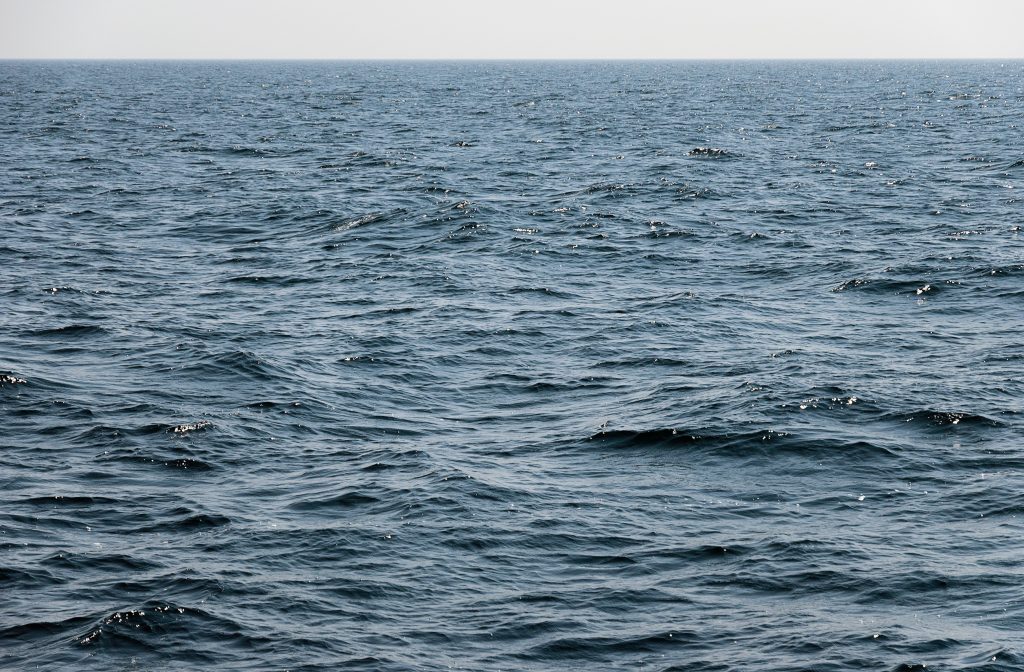One Of The Best Info About What Is Coasting Good For

What Is Coasting At Work? How To Spot It And Stop
The Unexpected Perks of Coasting
1. Saving Fuel and Your Sanity
Let's talk about coasting, shall we? Not the kind where you're floating down a lazy river, sipping on something fruity. We're talking about the driving kind, where you lift your foot off the accelerator and let momentum do its thing. Some might call it lazy, I call it strategic! But seriously, what's coasting good for? Well, for starters, it's a surprisingly effective way to save fuel. Think about it: no gas being pumped, just the car rolling along. It's like giving your wallet a mini-vacation every time you do it. Plus, less wear and tear on certain engine components when you're not constantly demanding power. It's a win-win, really.
Beyond the fuel efficiency, there's a certain zen-like quality to coasting. In our hyper-connected, always-on world, it's a brief moment of detachment. You're not actively pushing, just observing and reacting to the road ahead. It can be surprisingly calming, especially during stop-and-go traffic where you're constantly accelerating and braking. Coasting allows for a smoother, more relaxed driving experience, reducing stress and fatigue. Who knew letting go could be so beneficial?
Of course, coasting isn't just about saving money and feeling mellow. It also encourages better anticipation. You start paying more attention to the flow of traffic, predicting when you'll need to slow down and adjusting your speed accordingly. This proactive approach not only makes you a safer driver but also sharpens your awareness of your surroundings. It's like a driving mindfulness exercise, where you're fully present and engaged with the task at hand, but without the frantic energy of aggressive acceleration.
And let's be honest, sometimes it's just nice to take a break from constantly pressing on the gas pedal. Your foot gets tired! Coasting provides a welcome respite, allowing you to stretch your leg and ease any tension. It might seem like a small thing, but over a long drive, those little moments of relaxation can make a big difference in your overall comfort and alertness. So, embrace the coast, my friends. Your wallet, your nerves, and your right foot will thank you for it.

Beyond the Basics
2. Reducing Emissions and Extending Vehicle Life
Okay, so we've covered the fuel-saving and stress-reducing aspects of coasting. But the benefits extend even further. Let's talk about the environment. When you coast, you're using less fuel, which means you're also emitting fewer harmful greenhouse gases. It's a small contribution, perhaps, but every little bit helps in the fight against climate change. Think of it as a tiny act of rebellion against gas-guzzling habits. You're not just saving money; you're also doing your part to protect the planet. And that's something to feel good about.
Beyond the environmental angle, coasting can also be good for your car. Constant acceleration and braking put a strain on your engine, brakes, and other mechanical components. By coasting more often, you reduce the demand on these parts, potentially extending their lifespan. It's like giving your car a little break, allowing it to recover from the stresses of the road. And a happy car is a reliable car, which means fewer trips to the mechanic and more money in your pocket. It's a virtuous cycle of coasting goodness!
Now, I know what some of you are thinking: "Isn't coasting dangerous?" Well, like anything else, it's all about doing it responsibly. Coasting in neutral or with the engine off is generally not recommended, as it can reduce your control over the vehicle. However, simply lifting your foot off the accelerator and allowing the car to slow down naturally is perfectly safe, as long as you're paying attention to your surroundings and ready to react to changing traffic conditions. It's about being a proactive and aware driver, not a reckless one.
In short, coasting is a surprisingly versatile and beneficial driving technique. It's good for your wallet, good for your nerves, good for the environment, and potentially good for your car. So, the next time you're on the road, give it a try. Lift your foot off the accelerator, embrace the momentum, and experience the unexpected perks of coasting. You might just be surprised at how much you enjoy it.

Coasting Techniques
3. When and How to Let Go
So, you're sold on the idea of coasting, but you're not quite sure how to do it effectively. Don't worry, it's not rocket science. The key is to anticipate the flow of traffic and plan your coasting accordingly. For example, if you see a red light ahead, start coasting well in advance, allowing your car to gradually slow down. This will not only save fuel but also reduce wear and tear on your brakes. It's all about smooth, controlled deceleration.
Another great time to coast is when you're approaching a downhill slope. Instead of constantly applying the brakes to maintain your speed, simply lift your foot off the accelerator and let gravity do its thing. This will conserve fuel and prevent your brakes from overheating. Just be sure to keep an eye on your speedometer and adjust your speed as needed to avoid going too fast.
It's important to note that coasting isn't always appropriate. In certain situations, such as driving in heavy traffic or on winding roads, it's generally better to maintain a consistent speed and be ready to react quickly. However, in most other driving scenarios, coasting can be a valuable tool for saving fuel and reducing stress.
The best way to master the art of coasting is to practice. Start by paying attention to your driving habits and identifying opportunities to coast. With a little experimentation, you'll soon develop a feel for when and how to coast effectively. And who knows, you might even start to enjoy the challenge of maximizing your fuel efficiency and minimizing your environmental impact. It's a win-win situation, really.

Addressing the Myths and Misconceptions About Coasting
4. Separating Fact from Fiction on the Road
Like any driving technique, coasting has its fair share of myths and misconceptions. One common belief is that coasting in neutral saves even more fuel than simply lifting your foot off the accelerator. While it's true that coasting in neutral can eliminate engine braking, it also reduces your control over the vehicle and can be dangerous in certain situations. Modern cars are designed to cut off fuel flow when coasting in gear, making the fuel savings negligible.
Another misconception is that coasting is bad for your car's transmission. While it's true that repeatedly shifting into and out of neutral can wear down your transmission over time, simply lifting your foot off the accelerator and allowing the car to slow down naturally is perfectly safe. In fact, it can even reduce wear and tear on your brakes, as mentioned earlier.
Some people also believe that coasting makes you a slower driver. While it's true that coasting can reduce your average speed, it doesn't necessarily mean you'll be late for your appointments. By anticipating the flow of traffic and planning your coasting accordingly, you can maintain a reasonable pace while still saving fuel and reducing stress. It's all about finding the right balance.
In short, it's important to separate fact from fiction when it comes to coasting. By understanding the benefits and drawbacks of this driving technique, you can make informed decisions about when and how to use it effectively. And who knows, you might even become a coasting evangelist, spreading the word about this surprisingly versatile and beneficial driving habit.

Coasting in the Age of Electric Vehicles
5. Regenerative Braking and the Future of Efficient Driving
With the rise of electric vehicles (EVs), the question arises: does coasting still matter? The answer is a resounding yes, but with a twist. While traditional internal combustion engine (ICE) vehicles rely on coasting to conserve fuel by minimizing gas consumption, EVs utilize a different mechanism: regenerative braking.
Regenerative braking is a system that captures the kinetic energy generated during deceleration and converts it back into electricity, which is then stored in the battery. This process effectively allows EVs to "coast" and recharge their batteries simultaneously. So, instead of simply letting momentum carry the vehicle forward, EVs can harness that energy to extend their driving range.
Even with regenerative braking, coasting techniques remain relevant for EV drivers. By anticipating traffic conditions and lifting off the accelerator pedal early, EV drivers can maximize the amount of energy recovered through regenerative braking. This not only increases efficiency but also reduces wear and tear on the traditional friction brakes, which are still used in EVs for emergency stops or when more aggressive braking is required.
In essence, coasting in EVs is about optimizing the use of regenerative braking to enhance efficiency and extend driving range. It's a subtle but important technique that can make a significant difference in the overall performance and sustainability of electric vehicles. So, whether you're driving a gasoline-powered car or an EV, the principles of coasting — anticipation, smooth deceleration, and maximizing momentum — remain valuable for efficient and responsible driving.

FAQ
6. Everything You Need to Know About the Art of Letting Go
Still have questions about coasting? Here are a few frequently asked questions to help you become a coasting pro:
Q: Is coasting in neutral illegal?A: Generally, no, it's not illegal in most places, but it's often discouraged or even advised against in driver's education. The main concern is reduced control over the vehicle, particularly in emergency situations. It's always best to check your local traffic laws and regulations to be sure.
Q: Does coasting work with cruise control?A: Not really. Cruise control is designed to maintain a constant speed, so it will typically counteract any attempt to coast by adjusting the throttle. You'll need to disengage cruise control to coast effectively.
Q: Will coasting damage my transmission?A: Coasting, by simply lifting your foot off the gas pedal, will not harm your transmission. However, repeatedly shifting into and out of neutral at higher speeds could potentially cause wear and tear over time. So, stick to natural coasting, and your transmission will thank you.